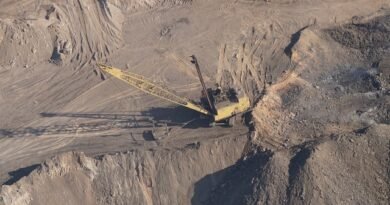Mapping Estonia’s bio-based potential
Estonia offers substantial opportunities for the bio-based industry. Situated on the banks of the Baltic Sea and including over 2000 islands and islets, Estonia’s landscape is a mix of plains and low hills. Half of the country is covered by forests, while around a third of the country is agricultural land. Agriculture, forest-based and chemical industries are among the strong drivers of Estonia’s economy. Also present are healthy food and beverages and wood-processing industries. Among the bio-based sectors, wood processing and agriculture take the leading role in terms of production value, describes Biobased Industries Consortium in their 2020 report.
These industries are a sound basis for a bio-based industry in Estonia. The presence of many international actors in the biotechnology sectors and a well-organised innovation support infrastructure contribute to a significant list of ingredients for a sustainable bio-based sector. In addition, the country is currently drafting a bioeconomy strategy that should be great support for local, regional and national bio-based operations. The country’s Smart Specialisation Strategy includes two priorities that are relevant for the bioeconomy: Biotechnology and Health Promoting food; “functionalised wood products” are also mentioned under the “Materials science and industry” priority.
The industrial sectors in Estonia have substantial residual streams and waste, most of which find low-value applications. These streams are relevant feedstocks for bio-based operations in the country. In terms of residual biomass streams, wood residues from the wood industry are by far the most abundant source of residual biomass, at 450 thousand tonnes/ year. Animal dejections from the primary sector come second at 85 thousand tonnes/year. Other important residual streams are crop residues and sludges from agriculture, effluents from the pulp and paper industry and the organic fraction of MSW. Residual streams from these activities are excellent feedstock for bio-based operations in Estonia. However, precise data on waste generation and management are not available across all industrial sectors, neither on the organic fraction of Municipal Solid Waste.
Estonia is one of the high-tech hubs in North-eastern Europe including biotech (with a specialisation in medicine biotechnology) and has an active national biotechnology association. It also features a solid chemical industry. There is a strong support towards high-tech university spinoffs and start-ups. The country has a network of technology parks and incubators, the main ones located around the cities of Tallinn, Tartu and Narva.
Several EU-funded research projects using biomass feedstock and biotechnologies have been running in Estonia in the last few years: notably SWEETWOODS, a Flagship under the Bio-based Industries Joint Undertaking programme, is coordinated by an Estonian company and being constructed in Estonia. This demonstrates the interest and commitment for bio-based activities by the scientific and industrial communities in the country
Bio-based activities heavily depend on innovation, and hence are relatively low in ‘moderate/ modest innovator’ countries. This may be the result of insufficient knowledge of the potential for the bio-based industry in these countries.




